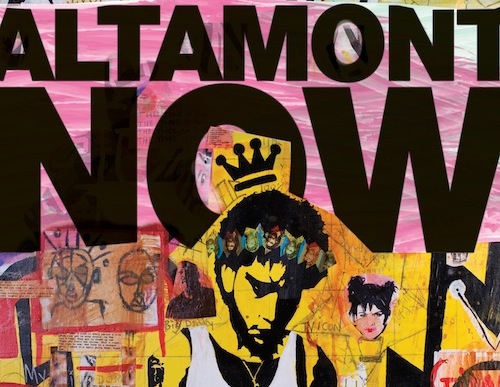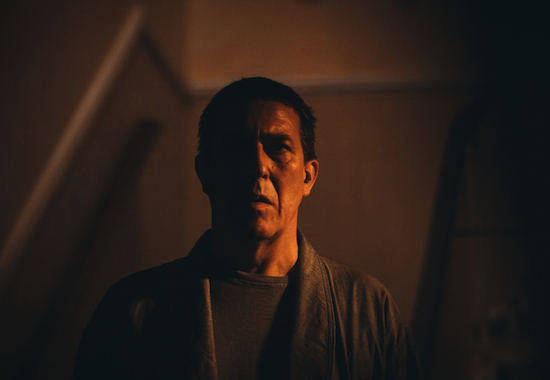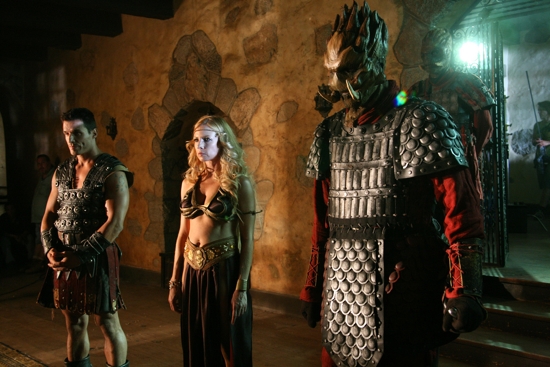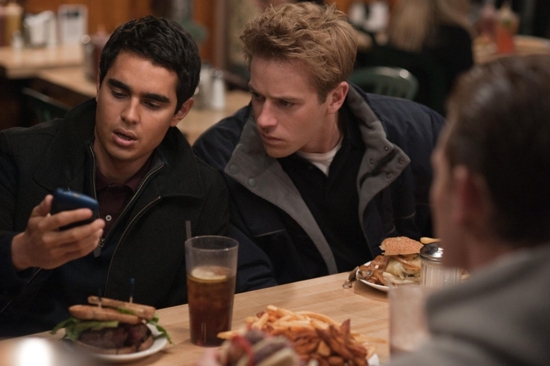The Sunrise 12 of '10
It should be noted that this list was meant to be called “Sunrise’s Most Inspiring Films of 2010”, but if you would like to look at this as a “best of” list, then that’s okay too. On with the films.
Altamont Now (Joshua von Brown)

Altamont Now
While on an initial viewing the limits of the dialog and performance dominate, the feel of immediate deconstruction and analysis inherent in contemporary punk aesthetic comes to the forefront as the work’s strength. Screaming with energy and an intelligent sorting through the problems of action in contemporary counter-culture Altamont Now’s smartly delineates a movement’s disintegration through a mocking use of the medium itself to pose the question of any mediation as a legitimate for of contemporary “culture.”
The Anchorage (C.W. Winter & Anders Edstrom)

The Anchorage Film Still
It is precisely the quiet and perhaps “bare” nature of this fiction/non- fictive hybrid that allows for a simple return to cinema basics. Without the hindrance of narrative’s contrived relationship with cinema, Winter and Anders have found a contemplative observation of the quotidian rituals of Edstrom’s mother that hint at the normalcy and perhaps banality of the spiritual. While the 16mm cinematography feels cleansing in it’s earthy tactility, it becomes fascinatingly apparent were are also observing Cinema think through the necessity and purpose of Story; quite an undertaking for a first feature.
The Eclipse (Conor McPherson)

The Eclipse Still
McPherson’s dramatic rendering of a writer haunted by the memory and emotions of his deceased wife pushes through the conventions of a ghost story to focus on the fragility of human emotions during such nebulous mental states. Overcoming the fear of unknowns, that are primarily psychological and emotional, further grounds the genre into horror-realism in a manner similar to Hans-Christian Schmid’s story of demonic possession in Requiem.
The Girl on the Train (Andre Techine)

The Girl on the Train
Techine’s narrative mastery evokes intelligent questions about the self- ascribed identity and relationships of a young digital native who’s contemporary thought processes dismisses consequences. As a brief lie comes to a dramatic head, her actions reveal complicated ambiguities that her digital- immediacy cannot escape as she recognizes the endangered concept of responsibility.
I Am Love (Luca Guadagnino)

I Am Love
Elusive in its structure due to the passion that excites the use of every frame, Giadagnino vigorously captures the electricity about life (as well as the fragility of such emotionally charged energy) in a manner seamlessly in- tune with its subject matter that it seems Giadagnino’s naturally composed of cinema himself. It will be quite exciting to see how he grows into further fictional work.
Kisses (Lance Daly)

Kisses
Daly’s reliance upon an impressionism over narrative appropriately captures the threats that adult logic and thinking imposes upon a child’s emotionally rejuvenating imaginings and observations. While two young kids run away from home, their ability to out dodge adults becomes a metaphor of escapism from the oppressive customs of global-market capitalism. Daly’s allowance of a meandering camera captures this fleeting essence inherent in the young that embrace an innocent excitement about the world that has not been so gracefully depicted since the likes of Lynn Ramsay. Daly lingers on what we dare to cinematically link to nostalgia before it really becomes underwhelmed in comparison with the contemporary delights of the digital.
No Easy Decision (Morgan J. Freeman) [[Watch the Film]](http://www.mtv.com/videos/no-easy-decision- special/1654990/playlist.jhtml)

No Easy Decision
While footage remains tame, MTV’s one-time airing of the thought and emotive processes (rather than practical and physical documentations) of Markai Durham’s underage abortion choice has brought forth a dominant discussion in a manner that seems timely by mediated standards, yet late in terms of home- politics discussion. Drew Pinski leads discussion that is reminding of a time when AIDS was an under-discussed because of fear and limited knowledge. Not “vivid” enough for some and blasphemy for others, the controversial episode’s intelligent purpose of discussion is clearly visible upon the MTV website, where young audience members are discussing and messaging over this issue that will come to dominate their future elections.
Paper Covers Rock (Joe Maggio)

Paper Covers Rock
What at first feels like a trite DIY-verite becomes quite intriguing through it’s sensitive character analysis and possibly unintentional Mumble-genre self-analysis. Jeannine Kaspar’s incredible performance depicts the achievement of a depression-ridden Sam to find a means to recognize one’s responsibility to those outside of one’s own body/mind that also metaphorically transcends the critical resistance against “mumble” works to find a movement towards a more matured DIY POV.
Please Give (Nicole Holofcener)

Please Give
Holofcener once again astonishes in her abilities to connect the dots about the contemporary world, in which we associated non-relevance with death and the bravery that must be evoked to over hurdle through emotional non-relevance to find mature relationships. Holofcener’s witty dialog compliment a poetic, yet piercingly real depictions of the contemporary American neurosis that is neatly holding her place as a possible Woody Allen successor.
Princess of Mars (Mark Atkins)

Princess of Mars
Direct-to-DVD sci-fi cult distributor The Asylum’s prolific director of photography / director Mark Atkins has finally found a work that caters to his bizarrely illogical narrative jumps and campy performance styles in a recent drafting of E.R. Burroughs. I can only marvel and admire Atkin’s abilities to create a coherent work that works on the level of 60s sci-fi cultish fun and contemporary war-subtext (although quite conservative in tone) in under twelve days of shooting. Arkin’s auteur-istic tendencies (in the comparison with someone like Lucio Fulci or William Castle) should not be over looked despite it’s quality, especially in today’s cinematic landscape overtaken by ‘Fincher’s and ‘Anderson’s.
The Social Network (David Fincher)

The Social Network
Still amazingly brilliant in statement, just as much as in his deceptively subtle execution, Fincher continues to push his cinematic mastery into realms that rival those he’s studied and admires sooner than most expected. For further discussion, see [my candler blog article](http://www.candlerblog.com/2010/11/23/intriguing-possibilities-not- so-accidental-network/).
Tik Tok – Ke$ha Parody (thecomputernerd01) [Watch the Film]

Tik Tok Ke$ha Parody
While computernerd01’s intention seems to be a simple parody of pop-star Ke$ha’s Tik Tok,, the manner of execution amazingly works on multiple levels of abstraction and analysis of pop culture vacancy. Similar in ambition and energy as XsamiSDx’s video , which glamourizes and epitomizes the empty limits of the “pop” codified, what thecomputernerd01 has been able to identify is how the ease of commercial concepts of product are easily interchangeable between different companies, since their value is the same regardless of product. There is as much meaning behind Peter Griffin as there is behind Ke$sha’s lyrics. The logic of computernerd01’s lyrics convey this dis-associative reality behind the absurdist tendencies of consumer internet-linkage as contemporary rational logic or works cited, where drinking Sprite is the same as Coca Cola and the logic of punching Captain Crunch is perfectly possible.